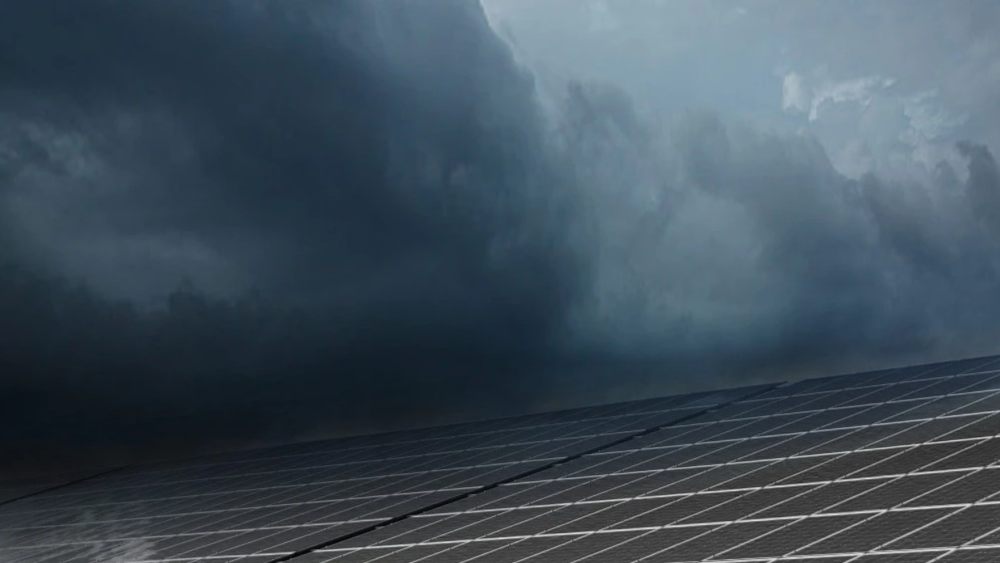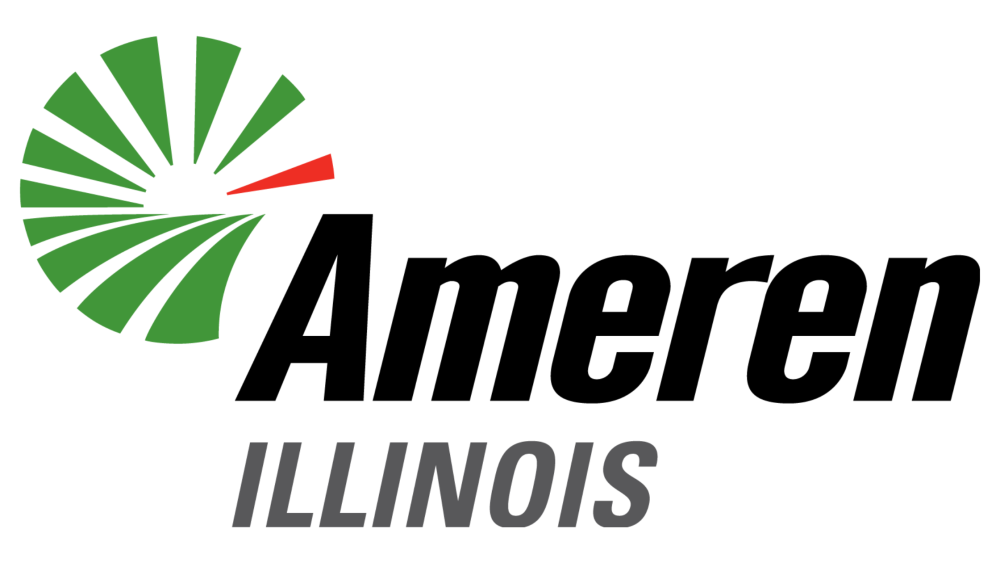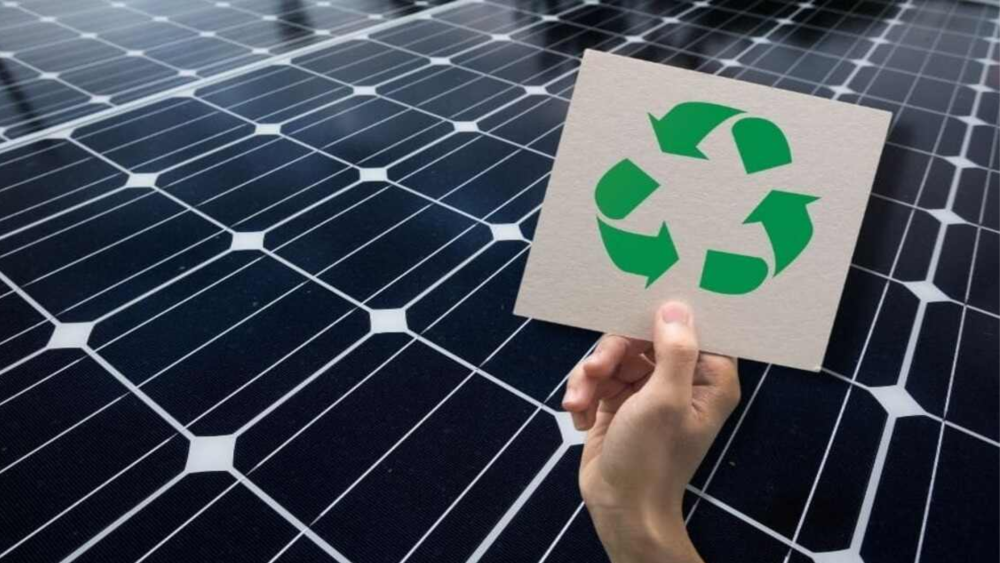Try our solar cost and savings calculator
What solar incentives are available in Georgia?
As a homeowner in Georgia, you have access to several different tax incentives that make solar panels more affordable. Solar incentives are available at both the federal and state levels to help you save thousands on your investment in solar energy.
Solar Calculator is here to help you take the next step in your transition to renewable energy. Below, we’ll discuss some of the different ways you can make solar more affordable.
Federal solar incentives
As part of the Inflation Reduction Act of 2022, congress passed several clean energy provisions to reduce energy costs. Among those provisions was an extension and upgrade of the Federal Investment Tax Credit (ITC).
Federal Investment Tax Credit
The Federal ITC allows you to claim 30% of your total equipment and installation costs on your federal taxes. There is no minimum or maximum amount you can claim and it includes equipment, installation, permitting, and even battery storage.
The ITC will remain at 30% until December 31, 2032. After that it will be reduced to 26% until December 31, 2033, then to 22% the following year. The ITC is currently set to disappear in 2035 unless it is renewed.
Who is eligible for the Federal ITC?
Most homeowners will qualify for the Federal ITC, but not all. You must meet the following criteria to claim your 30% tax credit:
The Federal ITC will also cover the following expenses:
Homeowners save around $10,000 on average with the Federal ITC. But that number can be higher or lower depending on your total expenses.
How to claim the Federal ITC
Claiming your Federal ITC couldn’t be easier. All you have to do is fill out IRS form 5695 and submit it with your tax return. You can consult with a tax professional for more assistance.
Local solar incentives
Who’s eligible : State Government
How to apply : Senate Bill 130 of 2008 established energy efficiency goals for new state building projects. All major facility projects over 10,000 square feet should strive to exceed the efficiency standards of ASHRAE 90.1.2004 by 30% where it is determined that such 30% efficiency is cost effective based on a life-cycle cost analysis with a payback of 10 years or less. Major facility projects must include Georgia products such that not less than 10% of all building materials used in a project are harvested, extracted or manufactured in Georgia, where such products are commercially available. Additionally, in 2015, HB 255 stipulated that "whenever green building standards are applied to the new construction, operation, repair, or renovation of any state building, the entity applying the standards shall use only those green building standards that give certification credits equally to Georgia forest products grown, manufactured, and certified under the Sustainable Forestry Initiative, the American Tree Farm System, the Forest Stewardship Council, or other similar certifying organization approved by such entity." In April 2008, the Governor separately created a policy to increase the energy efficiency of state government. Executive Order 04.24.08.02 requires state government agencies and departments to reduce energy use. This executive order created the Governors Energy Challenge 2020 as part of "Conserve Georgia." State agencies and departments must reduce energy consumption 15% by 2020, using 2007 energy use as a baseline. Reductions in energy use must come from energy efficiency measures and can also come from renewable energy development.
Who’s eligible : Commercial
How to apply : The Georgia Department of Transportation (DOT) will conduct a competitive solicitation process using NEVI funding to complete NEVI-compliant charging infrastructure. The public-private partnerships created will advance the state's plan to build out 1,523 miles of EV corridors. An RFP was released on July 25, 2023, with an end date of November 17, 2023 (later updated to November 27, 2023). The Georgia DOT released its 2023 plan update during Q3 2023, detailing that it expects to award the first contracts in early 2024 as a result of its July 2023 RFP. In preparation for Round 2, the Georgia DOT filed an NOIA in early May 2024, which has an end date of July 1, 2024. The agency has identified 33 locations for NEVI Round 2.
Who’s eligible : Schools
How to apply : Note: Recent round of applications closed on April 18, 2024. The GaDER School Bus Program is designed to help school systems in the state reduce diesel emissions through the purchase of cleaner buses and the use of cleaner fuels.
Who’s eligible : Residential
How to apply : Central Georgia EMC offers a loan program to homeowners who wish to pursue energy efficiency improvements. All energy efficiency improvements must meet Energy Star Criteria in order to qualify for the loan program. Loan amounts vary depending on the project. If a customer needs help determining what energy efficiency improvements could be made in their home, Central Georgia EMC offers in-home energy audits. To find out more about audits, contact the utility through its website or call (770)-775-7857.
Who’s eligible : Commercial, Residential
How to apply : Georgia enacted legislation in April 2006 (HB 1018) creating an exemption for biomass materials from the state's sales and use taxes. The term "biomass material" is defined as "organic matter, excluding fossil fuels, including agricultural crops, plants, trees, wood, wood wastes and residues, sawmill waste, sawdust, wood chips, bark chips, and forest thinning, harvesting, or clearing residues; wood waste from pallets or other wood demolition debris; peanut shells; pecan shells; cotton plants; corn stalks; and plant matter, including aquatic plants, grasses, stalks, vegetation, and residues, including hulls, shells, or cellulose-containing fibers." To qualify for the exemption, the biomass material must be utilized in the production of energy, including the production of electricity, steam, or both electricity and steam. Pellets and fuels derived from biomass are generally eligible. The energy produced from biomass material must be sold. The state of Georgia also provides a number of other exemptions for industries which electricity generators may qualify for. Please contact the Georgia Department of Revenue for more information.
Can you claim multiple tax incentives in Georgia?
Yes. You are allowed to claim multiple solar incentives for the same installation. However, you can only claim each incentive once. For more guidance on how to claim your solar tax incentives, talk to your installer or consult with a licensed tax professional before submitting your tax forms.
Does Georgia offer tax exemptions?
Green Building Incentive
Category : Financial Incentive
Website :
Applicable Sectors : Commercial, Local Government, Nonprofit, Residential
Incentive Amount :
Implementing Sector : Local
Energy Standards for Public Buildings
Category : Regulatory Policy
Website :
Applicable Sectors : Local Government
Incentive Amount :
Implementing Sector : Local
Category : Regulatory Policy
Website : https://www.dca.ga.gov/node/5073
Applicable Sectors : State Government
Incentive Amount :
Implementing Sector : State
Category : Regulatory Policy
Website : https://www.chambleega.com/planning_and_development/sustainability.php
Applicable Sectors : Local Government
Incentive Amount :
Implementing Sector : Local
Grant Program
Category : Financial Incentive
Website : https://nevi-gdot.hub.arcgis.com/
Applicable Sectors : Commercial
Incentive Amount : Varies
Implementing Sector : State
Category : Financial Incentive
Website : https://epd.georgia.gov/outreach/grants/school-bus-grants/apply-funding
Applicable Sectors : Schools
Incentive Amount : Varies
Implementing Sector : State
Rebate Program
Category : Financial Incentive
Website : https://www.georgiapower.com/business/products-programs/business-solutions/electric-transportation-business-programs/electric-vehicle-charger-rebate.html#
Applicable Sectors : Commercial
Incentive Amount : Commercial Level 2 EVSE: $50/kW (1-5 chargers), $250/kW (6+ chargers) Commercial DCFC: $100/kW
Implementing Sector : Utility
Category : Financial Incentive
Website : https://www.georgiapower.com/residential/save-money-and-energy/products-programs/electric-vehicles/buying-an-ev.html
Applicable Sectors : Residential
Incentive Amount : 150
Implementing Sector : Utility
Category : Financial Incentive
Website : https://www.jacksonemc.com/member-services/ev-and-renewable-energy/electric-vehicles
Applicable Sectors : Residential
Incentive Amount : 250
Implementing Sector : Utility
Category : Financial Incentive
Website : https://www.sawnee.coop/rebates-and-incentives#collapse-accordion-414-1
Applicable Sectors : Commercial
Incentive Amount : Lighting: 25% of the total cost up to a maximum of $750.00 Level 3/DC Fast Charger: 20% reduction of Contribution in Aid to Construction (CIAC) charges
Implementing Sector : Utility
Category : Financial Incentive
Website : http://www.diversepower.com/energy-tools/rebates/
Applicable Sectors : Residential
Incentive Amount : Heat Pumps Electric to Electric Heat Pump Change Out: $50 - $75/ton Gas to Electric Heat Pump Change Out: $75 - $125/ton Geothermal Heat Pump: $250/ton; $350/ton replacing gas Water Heaters Electric to Electric Water Heater Change Out: $75 - $150/ system Gas to Electric Water Heater Change Out: $300 - $500/system Thermostats Programmable Thermostats: $25 Insulation Insulation: $300 - $500/house Duct Sealing Reduce Leakage greater than or equal to 20%: $600 Reduce Leakage greater than or equal to 25%: $800 Reduce Leakage greater than or equal to 30%: $1,000
Implementing Sector : Utility
Category : Financial Incentive
Website : http://www.diversepower.com/energy-tools/rebates/
Applicable Sectors : Construction, Residential, Installers/Contractors
Incentive Amount : New Construction Air Source Heat Pump: $50/ton Geothermal Heat Pump: $350/ton Electric Water Heater: $100/unit NIMA 14-50 or 14-30 Outlet: $50/unit
Implementing Sector : Utility
Category : Financial Incentive
Website : http://www.mariettaga.gov/765/Rebates-Incentives
Applicable Sectors : Residential
Incentive Amount : HVAC Rebates Heat Pump: $150 Water Heater: $250 Heat Pump and Water Heater: $500 Energy Star Electric Central AC: $100 Appliance Rebates Freezer: $25 Room air conditioner: $30 Clothes washer: $50 Dishwasher: $50 Full size Refrigerator/Freezer: $50 Heat Pump Water Heater: $250 Other Rebates Programmable thermostat: $30 Water heater blanket: $10 Toilet Rebates WaterSense ultra high efficiency toilet: $75
Implementing Sector : Utility
Category : Financial Incentive
Website : https://utility.org/energy-efficiency/smart-choice-home/
Applicable Sectors : Residential
Incentive Amount : Existing Home Rebates Programmable Thermostat: $50 Electric Vehicle Charging Station: $100 Heat Pump/Air Conditioner Replacement: $100 Heat Pump Water Heater: $250 New Home Electric Vehicle Charging Station: $100
Implementing Sector : Utility
Category : Financial Incentive
Website : http://www.waltonemc.com/index.php/home/rebates/
Applicable Sectors : Residential
Incentive Amount : Existing Homes Electric Water Heater: $200/unit Electric Heat Pump: $200/unit Heat Pump Water Heater: $200/home Waste Heat Recovery System: $200/home New Homes Underground Wiring Refund: Up to $500 Electric Water Heater: $200/unit Heat Pump Water Heater: $200/home Waste Heat Recovery System: $200/home
Implementing Sector : Utility
Category : Financial Incentive
Website : http://www.jacksonemc.com/rebates
Applicable Sectors : Residential
Incentive Amount : Electric Heat Pump Replacement: up to $400 Smart Thermostat: See website for details Home Energy Evaluation: $200 Duct Sealing & Replacement: 50% of cost up to $400 Insulation and Air Sealing: 50% of cost up to $400 An energy audit must be performed to qualify for the Duct Sealing & Replacement as well as the Insulation & Air Sealing rebates.
Implementing Sector : Utility
Category : Financial Incentive
Website : https://energyright.com/residential/rebates/
Applicable Sectors : Residential
Incentive Amount : HVAC Air Source Heat Pump: $1,500/unit Geothermal Heat Pump: $1,500/unit Mini-Split Heat Pump: $1,000 - $1,2500 Duel Fuel Heat Pump: $100 - $600/unit Heat Pump Water Heater: $500/unit Air Conditioner: $300 - $700/unit Tune-up: $50 Weatherization Duct Sealing: $300/unit Air Sealing: $300/home Wall/Attic Insulation: $300/home Floor Insulation: $100/home Windows: $15/unit
Implementing Sector : Utility
Category : Financial Incentive
Website : https://energyright.com/business-industry/incentives/
Applicable Sectors : Commercial, Industrial
Incentive Amount : HVAC Heat Pump: $80 - $175/ton (replacement), $175/ton (new installation) Variable Refrigerant Flow Heat Pump: $250/ton Duel Fuel Heat Pump: $250/ton Thermal Ice Storage: $9/ton/hour (partial), $11/ton/hour (full) Variable Speed Drive: $100/hp Lighting Indoor LED Lighting: $0.08/annual kWh reduced Exterior LED Lighting: $0.04/annual kWh reduced Electric Vehicles Electric Forklifts: $1,000 (leased), $2,000 (new/refurbished) Refrigeration Electronically Commutated Motors: $50/unit Evaporator Fan Controllers: $200/unit Reach-in Cases: $100 - $200/lin. ft. Custom: $0.10/annual kWh
Implementing Sector : Utility
Category : Financial Incentive
Website : https://www.georgiapower.com/business/products-programs/efficiency-maintenance/ceep.html
Applicable Sectors : Commercial, Construction, Industrial, Nonprofit, Schools, Federal Government, Installers/Contractors, Agricultural, Institutional
Incentive Amount : Business Equipment High-Efficiency Servers: $100/server High-Efficiency Battery Charger: $200/unit Office Power Management: Varies See form for details Food Service Varies widely by equipment type See form for details Existing Building Lighting Varies widely by equipment type See form for details New Construction Lighting Varies widely by equipment type See form for details Pumps Variable Speed Irrigation Pump: $50/HP See form for details Heating and Cooling HVAC Systems (Air Conditioners and Air-Source Heat Pumps): Varies by unit type or tonnage Smart, WiFi-Enabled Thermostat: $75/unit Variable Frequency Drives: $50/HP Hotel Key Card Room Energy Control System: $80/room Electronically Commutated Motor on VAV Boxes: $50/motor See form for details Water Heaters Heat Pump Water Heater: $250/unit See form for details Custom Projects Custom Equipment: $0.10/kWh saved See form for details
Implementing Sector : Utility
Category : Financial Incentive
Website : https://www.georgiapower.com/residential/save-money-and-energy/products-programs/home-energy-efficiency-programs/home-energy-improvementprogram.html
Applicable Sectors : Residential, Multifamily Residential, Low Income Residential
Incentive Amount : Individual Improvements: The following items may qualify for rebates of 50% of the cost up to: Program Contractor Required: Air Sealing - $300 Program Contractor or Licensed Professional Required: Duct Sealing - $300 Ductless Mini-Split & Ground Source Heat Pumps - $1,000 Self Installation/DIY: Attic Insulation - $250 Smart Thermostat - $75 Level 2 EV Charger - $50 Dehumidifier - $25 Circulation Pump - $40 Ceiling Fan - $35 Advanced Power Strip $20 Pool Pump Timer - $150 Home Energy Management System (HEMS) - $175 Heat Pump Water Heater - $500 Whole House Improvements: 20% Whole House Reduction - 50% of cost, up to $1,100 Home Energy Assessment - up to $150 Up to $1,100 towards eligible energy efficiency home improvements Multi-Family Improvements: 20% Whole House Reduction - $500 or $1,000 (income-qualified) per unit per year for qualifying improvements 35% Whole House Reduction - $1,000 or $1,500 (income-qualified) per unit per year for qualifying improvements Home Energy Assessment: $75 or $150 (income-qualified); completed by a participating program contractor Smart Thermostats - 50% of cost, up to $38 for ducted, central heating & air systems
Implementing Sector : Utility
Category : Financial Incentive
Website : https://www.georgiapower.com/residential/save-money-and-energy/products-programs/home-energy-efficiency-programs/ease.html#faq
Applicable Sectors : Low Income Residential
Incentive Amount : Varies
Implementing Sector : Utility
Category : Financial Incentive
Website : https://www.sawnee.com/rebates-and-incentives
Applicable Sectors : Residential
Incentive Amount : Attic Insulation Upgrades: 50% of project cost up to $200 Hybrid Water Heater: $100 Duct Sealing: 50% of cost up to $100/home HVAC Tune-Up: 50% of cost, up to $20/system Variable Speed Pool Pump: 50% of cost up to $100/pump Smart Thermostat: $25 Heat Pump/AC in Existing Home: $50/ton Radiant Roof Barrier (for new homes only): 50% up to $100 Central Cooling Load Management Switch: Total annual credit of $30 per switch; paid in three (3) equal installments of $10.00 on the July, August and September billing statements Smart Savers Thermostat Program: $30.00 per thermostat; paid in three (3) equal installments of $10.00 on the July, August and September billing statements Level 2 PEV Charger: $200 Existing Home Heat Pump: $50/ton Existing Home Air Conditioner: $50/ton
Implementing Sector : Utility
Loan Program
Category : Financial Incentive
Website : https://www.satillaemc.com/home-plus
Applicable Sectors : Residential
Incentive Amount :
Implementing Sector : Utility
Category : Financial Incentive
Website : https://www.jacksonemc.com/homeplus
Applicable Sectors : Residential
Incentive Amount :
Implementing Sector : Utility
Category : Financial Incentive
Website : https://www.cgemc.com/home-plus-loan-program
Applicable Sectors : Residential
Incentive Amount :
Implementing Sector : State
Category : Financial Incentive
Website : https://www.waltonemc.com/index.php/home/homeplus/
Applicable Sectors : Residential
Incentive Amount :
Implementing Sector : Utility
Category : Financial Incentive
Website : https://www.brmemc.com/heat-pump-financing/
Applicable Sectors : Residential
Incentive Amount :
Implementing Sector : Utility
Category : Financial Incentive
Website : https://aceloans.org/
Applicable Sectors : Commercial, Industrial
Incentive Amount :
Implementing Sector : Non-Profit
Sales Tax Incentive
Category : Financial Incentive
Website :
Applicable Sectors : Commercial, Residential
Incentive Amount : 100% exemption
Implementing Sector : State
Personal Tax Credit
Category : Financial Incentive
Website :
Applicable Sectors : Commercial, Residential
Incentive Amount : 10% of cost
Implementing Sector : State
Interconnection
Category : Regulatory Policy
Website :
Applicable Sectors : Commercial, Industrial, Local Government, Nonprofit, Residential, Schools, State Government, Federal Government, Institutional
Incentive Amount :
Implementing Sector : State
Net Metering
Category : Regulatory Policy
Website :
Applicable Sectors : Commercial, Industrial, Local Government, Nonprofit, Residential, Schools, State Government, Federal Government, Agricultural, Institutional
Incentive Amount :
Implementing Sector : State
PACE Financing
Category : Financial Incentive
Website :
Applicable Sectors : Commercial, Industrial, Local Government, Residential, Schools
Incentive Amount :
Implementing Sector : State
Building Energy Code
Category : Regulatory Policy
Website : https://www.energycodes.gov/status/states/georgia
Applicable Sectors : Commercial, Residential
Incentive Amount :
Implementing Sector : State
Solar/Wind Access Policy
Category : Regulatory Policy
Website :
Applicable Sectors : Commercial, Industrial, Local Government, Nonprofit, Residential, Schools, State Government, Federal Government
Incentive Amount :
Implementing Sector : State
What is the best way to pay for solar?
Cash payments
Paying cash upfront is easily the simplest and most cost-effective route — if you can afford it. It lets you maximize your total savings by avoiding interest rates and other fees. You also don’t have to worry about making monthly payments. But the downside is you have to spend a lot of cash at once which isn’t an option for everyone.
Pros
Cons
Financing
Financing solar panels is probably the most common payment method. You get to own the system — as opposed to leasing — but you don’t have to spend all your cash at once. And although you do have to pay interest, you can secure a fairly low interest rate as long you have good credit.
Pros
Cons
Solar leases and PPA agreements
If purchasing solar equipment isn’t an option for you, a lease or a PPA may be worth exploring. This is where you are essentially “renting” the equipment for a fixed rate each month. And although you don’t have ownership of your system, there are other benefits such as maintenance and servicing agreements.
Pros
Cons
Going solar doesn’t have to break the bank
Going solar is becoming more affordable than ever. And thanks to a variety of solar incentives in Georgia, you can save thousands more on your investment.
Want to get an idea for what it will cost you to go solar? You can use our solar cost calculator to generate a customized estimate instantly. We take into consideration a wide range of criteria including location, electric bill, roof size, and other factors. Try it out today and start planning for your future.




